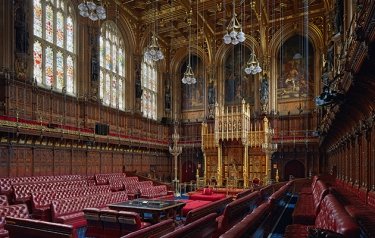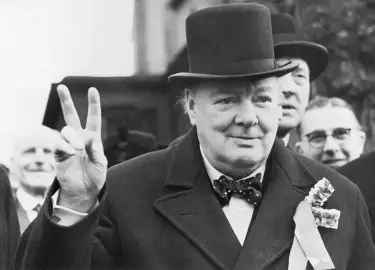Category Archive 'Britain Sinking into the Sea'
06 Sep 2025

The New York Post in a recent 6:12 video reports the Scottish Police contention that 12-year-old girl and her 13-year-old sister were the guilty parties harassing innocent Bulgarian immigrants and brandishing weapons. The Internet memes praising the little girl for protecting her sister is just a bunch of bigoted right-wing misinformation.
And, though the Post reporter does note that the girls’ aunt started a fundraiser telling a completely different story, he accepts the Scottish Police report dismissing the white Scottish family’s allegations and exculpating the Bulgars and even quotes a Muslim Scottish National Party politician denouncing victimizing immigrants.
I’ve been looking regularly at the British Spectator, The Telegraph, and the (London) Times looking for what Ernest Hemingway used to call “the true gen” and I’ve been quite surprised to encounter no coverage at all of a story that produced millions views of Internet memes around the world.
The British Police released a rather Orwellian statement:
We are aware of misinformation being shared on social media in relation to an incident where a Bulgarian couple were approached by youths in St Ann Lane, Dundee, on Saturday 23 August 2025.
“A 12-year-old girl has been charged with being in possession of offensive weapons. She will be referred to the relevant authorities and our inquiries are ongoing.
“We would like to thank the local community for their help with our investigation and would urge the public not to share misinformation about this incident or speculate on the circumstances.”
Mustn’t speculate now! you hear?
—————————————–
Does this look like a reasonable and objective police response to you?
It looks to me like a wildly excessive response, suggesting that some sort of highly sensitive issue is involved and the point is being made emphatically that no one had better dare violate a top level taboo.
It may be simply that the left-wing insistence on the State’s Monopoly of Force is being affirmed, but it is also highly possible that what is being made clear is that anyone guilty of an affront to a member of a protected victim group like exotic alien immigrants, especially Muslims, will be made a conspicuous example of.
——————————————–
The Scottish Sun, additionally, puts a suggestively different light on the story identifying the Bulgarian immigrant victim as 21-year-old Fatos Ali Dummana who, on social media, has described himself as a “gypsy gangster,” and posted a photo of himself leaning on an obviously expensive two-seater sportscar with the caption: “I’m waiting for you whores to get in my supercar.”
27 Aug 2025

A 14 year old Scottish girl was arrested for defending herself and a friend? or sister? from the unwelcome advance of a Muslim immigrant in Dundee. The Muslim retaliated for being rebuffed by making a cellphone video as he taunted the girl and then whistling up the police.
Link to story and video.
Admire the pussinalimity of the BBC report.
19 Dec 2024

—————————-
Edward Gibbon on the Victory of Charles Martel at Poitiers, 732 A.D., in his Decline and Fall of the Roman Empire, Chapter 52:
A victorious line of march had been prolonged above a thousand miles from the rock of Gibraltar to the banks of the Loire; the repetition of an equal space would have carried the Saracens to the confines of Poland and the Highlands of Scotland; the Rhine is not more impassable than the Nile or Euphrates, and the Arabian fleet might have sailed without a naval combat into the mouth of the Thames. Perhaps the interpretation of the Koran would now be taught in the schools of Oxford, and her pulpits might demonstrate to a circumcised people the sanctity and truth of the revelation of Mahomet.
It wasn’t enough for the treasonous intelligentsia to give away the British Empire, they next proceeded to give away Britain, too.
What do you suppose would Nicholson or Napier say, if you predicted that one fine day, Labour would be in power, the former Conservative Prime Minister would be a Merchant caste Punjabi and the head of the opposition Tory Party would be a female Yoruba?
21 Nov 2024
Does this mean Christmas carolers will be jailed?
29 Jul 2024


Another great traditional institution is destined to fall due to another Labour victory.
An edited version of remarks delivered by Andrew Roberts at the House of Lords on July 23, 2024.
My Lords, it would be churlish not to congratulate the Labour Party on its stunning victory on the fourth of July and unpatriotic not to wish the Government luck and a fair wind. Since the abolition of the hereditary element in this House was in their manifesto, and of course they have the political power to enact it, all I want to do today is speak as an historian about the effect of breaking this living link that we presently have with Britain’s past.
Burke tells us, “Society is indeed a contract . . . it becomes a partnership not only between those who are living, but between those who are living, those who are dead, and those who are to be born.” The hereditary element in this place represents—I hope hereditary Peers in this debate will not mind this characterization—the “dead” part of that contract, for they do not merely represent themselves here; they also represent their ancestors, whose often glorious deeds have made Britain the country that she is today.
When we see the noble Lord, Lord Ponsonby, for example, as well as the good-natured and highly intelligent fellow who sits on the Labour Front Bench, we also see the shade of his great-great-great-grandfather, Major General Sir Frederick Ponsonby, whose charge of the twelfth Light Dragoons helped save the Union Brigade at a critical moment of the Battle of Waterloo—which, of course, was won by the ancestor of another of our present-day Members of this House, the noble Duke, the Duke of Wellington. The noble Lord, Lord Cromwell, who is speaking in this debate, holds a title that, for all that it went into abeyance for four hundred years, was created in 1375, six hundred fifty years ago next year—nearly two-thirds of a millennium.
We are surrounded by ghosts in this Chamber, but they are the ghosts of the great. One of the speakers in this debate from the Liberal Benches will be the noble Viscount, Lord Thurso. At a crucial moment for the continued existence of this country, in May 1940, his grandfather, Sir Archibald Sinclair, put party differences to one side to make his old comrade from the trenches, Winston Churchill, Prime Minister. He was Secretary of State for Air during the Battle of Britain. Then, only three months after he left that vital post, his place was taken by Viscount Stansgate, a decorated RAF officer and, of course, the grandfather of our own noble Viscount, Lord Stansgate.
Some of the families represented in this House go back to the very founding of our country. The first Duke of Montrose—and we heard that moving statement from the eighth Duke—played a central part in the Act of Union that created the United Kingdom.
The greatness and the drama of our national past finds a living embodiment here in this Chamber in a way that does not exist in other Parliaments around the world. Once that link is broken, it cannot be reconstituted. To quote Burke again, “The age of chivalry is gone. That of sophisters, economists; and calculators has succeeded.” My Lords, I hope that, when the time comes to say farewell to the hereditary Peers, we will do so full of genuine gratitude for the centuries of service that they and their families have given this House and this country.
All of which proves that the Lords in 1911 should have listened to Lord Willoughby de Broke and called out the Household Cavalry to disperse the Commons when Asquith’s government undertook to ram through the Parliament Bill stripping the House of Lords of most of its power of veto.
19 Feb 2023


Counter Terrorism Policing \ What We Do \ Prevent
Be thankful every day that you don’t live in California or in Britain where the newest, craziest, and most extreme forms of contemporary insanity flourish, multiply, and metastasize in more outrageous and virulent forms every week.
Douglas Murray, in The Spectator, recently noted in an editorial that British Counter Terrorism’s Prevent’s “Research Information and Communications Unit” (RICU) identified some potential sources of indoctrination in right-wing extremism.
[A]ccording to RICU there were warning signs if people absorbed information or opinions from ‘pro-Brexit and centre-right commentators’. These included Jacob Rees-Mogg, Melanie Phillips, Rod Liddle and yours truly. So everybody reading this column is at as much risk of being ‘radicalised’ as some young Muslim settling down with a tape recording of Ayman al-Zawahiri or Osama bin Laden, and Rees-Mogg becomes the equivalent of a finger–waving imam sending the young off to become martyrs in the cause of Allah. Which is strange because he never came across that way to me when we crossed paths at Conservative Philosophy Group meetings.
I have since been able to look over some of this pathetic material provided at public expense and can confirm that it gets worse. In one RICU document a number of books are singled out, the possession or reading of which could point to severe wrongthink and therefore potential radicalisation. These include a book on the Rotherham rape gangs, books by Peter Hitchens, Melanie Phillips and – once again – me. Without wanting to beat my own drum, the book of mine that is singled out for this sinister treatment is my 2017 work The Strange Death of Europe. This book spent almost 20 weeks in the Sunday Times bestseller lists, has been translated into dozens of languages and was for some time the bestselling non-fiction book in the UK. So that is an awful lot of potential radicals just there. …
When I first saw these documents I felt a sort of white-hot anger. But then I read on and saw that these same taxpayer-funded fools provide lists of other books shared by people who have sympathies with the ‘far-right and Brexit’. Key signs that people have fallen into this abyss include watching the Kenneth Clark TV series Civilisation, The Thick of It and Great British Railway Journeys. I need to stress again that I am not making this up. This has all been done on your dime and mine in order to stop ‘extremism’ in these islands.
[Emphasis added.]
These include Leviathan by Thomas Hobbes, John Locke’s Two Treatises of Government and Edmund Burke’s Reflections on the Revolution in France, as well as works by Thomas Carlyle and Adam Smith. Elsewhere RICU warns that radicalisation could occur from books by authors including C.S. Lewis, J.R.R. Tolkien, Aldous Huxley and Joseph Conrad. I kid you not, though it seems that all satire is dead, but the list of suspect books also includes 1984 by George Orwell.
So in general, I begin to feel in good company. If government agencies are going to compile lists of suspect books, then I am very happy to stand condemned alongside these fine people, both living and dead.
RTWT
22 Dec 2022


Cersei’s Walk of Shame in “Game of Thrones.”
The last episodes of Harry and Meghan’s Whingefest aired on Netflix last Thursday and my own favorite Briton, Top Gear lead presenter Jeremy Clarkson responded with some frank personal reaction in his Friday column in the Sun.
Jeremy is what the British would describe as “a bit of a lad” and, sadly, today’s Britannia is even more infested than America with pious left-wing holier-than-thous. In response to Jeremy Clarkson’s remarks, Woke Britannia essentially had a cow.
Something in excess of 20,000 shocked and offended bed wetters wrote in to Britain’s press regulator (no First Amendment in Blighty), demanding Clarkson be fired or beheaded or otherwise suppressed.
His column has been taken down, but apparently what provoked all the brouhaha was his writing anent Duchess Meghan:
“I hate her. Not like I hate Nicola Sturgeon [leftist Nationalist Scottish Prime Minister] or Rose West [female serial killer]. I hate her on a cellular level.” And: “At night, I’m unable to sleep as I lie there, grinding my teeth and dreaming of the day when she is made to parade naked through the streets of every town in Britain while the crowds chant ‘Shame!’ and thrown lumps of excrement at her.” He also contended that “everyone” his age “thinks the same way.”
British papers have been absolutely filled with denunciations of Clarkson’s politically incorrect remarks by everyone from Rishi Sunak to Nicola Sturgeon to his own daughter.
It’s sad really that, just like America, Britain, once a nation of lions has today wound up ruled by sheep.
27 Nov 2022


Alec Marsh describes just how far the rot has set in in today’s Britain.
[In] Sebastian Payne[‘s] forthcoming book about the last days of Boris Johnson’s government…. [h]e tells the story of [Dominic] Raab arriving to counsel the Prime Minister during his last hours in Downing Street, dressed in white tie. ‘Raab awkwardly told Number 10 staffers he had to attend a white-tie dinner at the Mansion House in the City of London that evening, but required assistance with the outfit. An attendant was found with the skills to fix his bow tie.’
An attendant was found with the skills to fix his bow tie. Have standards of British public life ever been quite so damned in just 12 words?
Dominic Raab can’t do up a bow tie. And nor, it seems, could the coterie of those around Boris – or perhaps they didn’t want to get too close to him to do it? Either way, it looks bad.
Because to my mind, a Tory grandee who can’t tie a bow tie is like a Labour bigwig who doesn’t know the words to ‘The Red Flag’. They’re a bungee short of the full roof rack. And that’s because, if nothing else, the Tory party is still a very black-tie party – you know it, don’t you? The men at least. These are people who love nothing more than squeezing into a 35-year-old cummerbund and listening to an after-dinner speech having drizzled three courses down their dress shirts.
Raab stands for the party of Winston Churchill – he is a lineal political descendent of the man who, don’t forget, didn’t just wear a bow tie more or less daily but also masterminded the defeat of the world’s most fearsome war machine as well as the world’s most odious regime while doing so. It’s not going too far to say that Churchill saved the world while wearing a bow tie.
Eight decades on and of course things have changed, but not that much.
RTWT
Not every man can carry off a bow tie in ordinary dress. But it is impossible to move in upper adult circles without finding oneself present from time to time at occasions requiring wearing semi-formal (black tie) and formal (white tie) attire. Few men today can afford valets, and wearing pre-tied ties is profoundly infra dig. Therefore, knowing how to tie (and adjust) a bow tie is an essential adult male skill.
Your are browsing
the Archives of Never Yet Melted in the 'Britain Sinking into the Sea' Category.
/div>

Feeds
|








